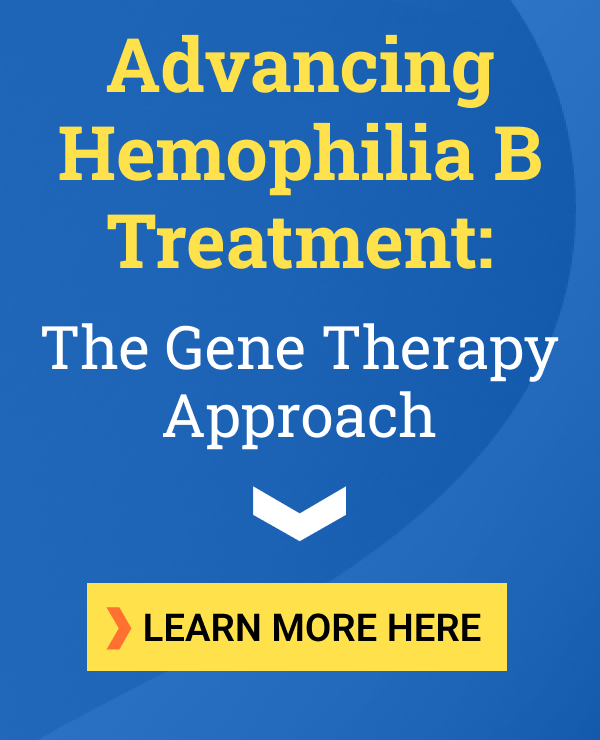Navigating work with hemophilia B
Last updated March 12, 2024, by Susie Strachan
Managing hemophilia B at work involves taking proactive steps to ensure a safe and supportive environment.
Jobs that involve bending, heavy lifting, or repetitive motions can put a strain on your joints and cause bleeding. You may want to ask for workplace accommodations to make them less risky.
But for all types of employment, you may want to consider whether to tell your employer about your bleeding disorder. You may also want to check for potential workplace hazards, tell colleagues about your health situation, and create a good work-life balance that allows time for your medical appointments and treatments.
When to disclose hemophilia B to your employer
When you have hemophilia B, there are reasons why you might want to consider talking to your employer about workplace safety and how it can affect your health.
The impact of hemophilia B on employment can be significant, especially if you work in jobs such as construction and manufacturing.
A study of adult men with hemophilia B in the U.S. found that many experienced absenteeism from work and disability that arose from hemophilia B symptoms such as repeated bleeding and joint damage.
Considering these challenges, it helps to understand the legal protections in place.
In the U.S., the Americans with Disabilities Act safeguards individuals, including people with hemophilia B, from discrimination throughout the employment process, from job applications and interviews to the terms of employment and promotions.
These legal rights for employees with hemophilia B give you protection from being discriminated against based on your condition, and include requesting reasonable adjustments to help you do your job.
Proactively managing your condition can involve explaining to your employer what hemophilia B entails and what treatment or action is required in the event of a bleed.
Hemophilia B support groups may be able to offer advice on how to approach a conversation around disclosure at your workplace and offer emotional support. For example, you might ask whether others have told their employer that they have hemophilia B and how they approached the conversation.
Talking about your hemophilia B can be helpful, as it:
- allows your employer to implement necessary safety measures and accommodations to prevent workplace injuries related to hemophilia B
- notifies any first aid or medical personnel at your company about your condition so an active treatment plan can be put in place in case of emergency.
Potential hazards in the workplace
While most workplaces are safe for people living with hemophilia B, it helps to be aware of any potential hazards. This is particularly important for construction or manufacturing workplaces.
Hazardous activities may include:
- work that involves frequent heavy lifting or physical strain that may increase the risk of joint bleeds
- working with sharp tools, equipment, or machinery that may pose a higher risk of cuts or injuries
- repetitive motions, such as constant bending or twisting, that may contribute to joint stress
- work in slippery conditions that may cause falls and bruises.
There are a number of precautions you can take, including:
- asking your employer if they offer safety training to learn about potential hazards
- adapting the way you do your job, such as using assistive equipment like lift aids, or rotating tasks to avoid repetitive strain
- wearing protective gear such as gloves, eyewear, and appropriate clothing to minimize the risk of injuries
- taking regular breaks to avoid fatigue, which can lead to accidents.
It can also be helpful to prepare for possible injury such as a joint bleed by:
- having a first aid kit handy, including a factor replacement therapy kit
- putting an emergency plan in place
- training some colleagues in how to follow the emergency plan.
Building positive relationships with colleagues
Talking to your colleagues about hemophilia B may help promote understanding and empathy.
Being open to discussing the potential impact of your health on your responsibilities and suggesting effective ways to work with fellow employees can foster a more supportive and understanding workplace.
Consider asking a trusted colleague if they would be willing to become familiar with administering hemophilia B treatment in case of emergency.
This may involve showing them the hemophilia B treatment kit and explaining how it contains essential tools and medications needed for immediate response in case of a bleeding episode.
Workplace accommodations
Should your work environment pose a challenge, the Americans with Disabilities Act offers protections from losing your job and requires your employer to implement reasonable accommodations for any disclosed disability.
Workplace accommodations for hemophilia B might include:
- switching to a different job that’s easier on your joints or poses less risk of injury
- flexible schedules to accommodate factor replacement therapy or medical appointments
- allowing unpaid leave if you run out of accrued sick or vacation time
- remote work to provide a more controlled environment.
You might also want to speak with your employer about having a private space for hemophilia B treatment.
Maintaining a good work-life balance
Having a healthy work-life balance means managing the responsibilities of work, such as job tasks, deadlines, and commitments, alongside personal activities and family responsibilities.
Effectively managing your time involves setting goals and allocating specific periods for work, healthcare appointments, and hemophilia treatments.
Time management at work can include:
- asking your employer for flexible hours, remote work, or a part-time schedule to accommodate healthcare appointments and hemophilia B treatment
- setting realistic work goals and deadlines to avoid strain on your body, including your joints, and bruising
- setting boundaries, such as not bringing work home, and having designated times for rest and relaxation.
It’s also important to keep up with your self-care, which may include:
- doing regular, low-impact exercise that is considered safe for hemophilia
- practicing relaxation techniques such as deep breathing, meditation, or yoga, to boost your mental health
- eating a healthy diet rich in whole grains, fruits and vegetables, and low in fats, added sugars, and salt
- asking friends and family for help, especially when you need rest
- checking in with your support groups to learn more about how others with hemophilia B achieve and maintain a healthy work-life balance
- staying in contact with your healthcare team
- keeping up with your treatments, including medications and physical therapy.
Hemophilia News Today is strictly a news and information website about the disease. It does not provide medical advice, diagnosis or treatment. This content is not intended to be a substitute for professional medical advice, diagnosis, or treatment. Always seek the advice of your physician or other qualified health provider with any questions you may have regarding a medical condition. Never disregard professional medical advice or delay in seeking it because of something you have read on this website.
Recent Posts
- Hemophilia A gene therapy superior to FVIII replacement in Phase 3 trial
- Addressing medical trauma in the hemophilia community
- Preparing for college means putting hemophilia in its place
- Giving thanks for the lifeline of the ADA on its 34th anniversary
- Altuviiio prevents bleeds in young children with severe hem A: Trial
Related articles







